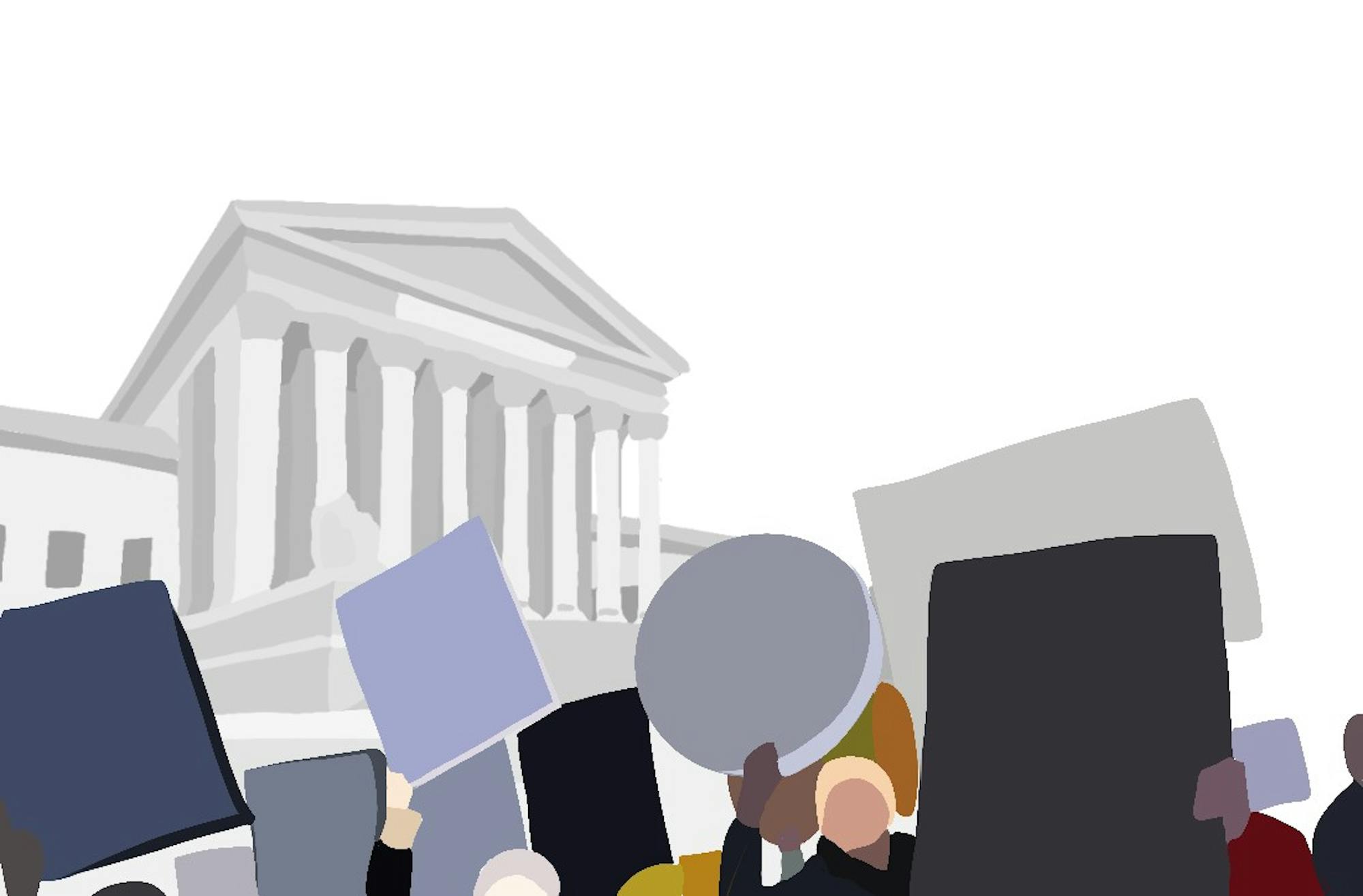On June 24, the Supreme Court ruled to overturn Roe v. Wade., consequently removing the constitutional right to an abortion. The decision sent reverberations around the world, including here at the College. The College released a statement in response to the decision, Planned Parenthood New Hampshire held a “Ban Off Our Bodies” rally on the Green and many students reacted to the monumental legislation change in their own way.
Ady Chaudhari ’24, co-president of the Planned Parenthood Generation Action, said that she was angry and enraged at the Supreme Court decision Chaudhari, alongside her co-president Eliza Holmes, Rep. Mary Hakken-Phillips, D-N.H. and Alyssa Antman — organizing manager for Planned Parenthood New Hampshire — arranged the “Bans Off Our Bodies” rally on the College Green, which occurred the same day as the decision.
“It was a very difficult day, but also I was very happy to see the turnout,” Chaudhari said. “It was really great, especially as a woman of color, to … be able to speak about my experiences, especially being from Texas.”
Chaudhari said speaking about these experiences was important because access to birth control and reproductive health services has “saved her life” in the past.
For Miles Brown ’23, former president of the College Democrats, the leak of the Supreme Court’s opinion back in May — as well as his knowledge of abortion restrictions in some states – lessened the surprise.
“It is difficult to say I was shocked, but it was a really sobering moment [because] this is now America and it is going to affect millions of people,” Brown said. “It was something that was emotionally impactful for a lot of people and overall, I would say devastating.”
Members of College Democrats previously participated in a rally for abortion justice last fall, and Brown said that in the future, the College Democrats will direct students to abortion providers in New Hampshire.
However, not all students feel the same way.
Keli Pegula ’24, who supports the pro-life movement, said she was “very excited” to hear about the reversal of Roe v. Wade.
Pegula said that she is involved in an on-campus chapter for Students for Life of America — a pro-life organization, as well as the David Network — an organization that connects students in the Ivy League and other schools to the March For Life, an annual pro-life march in Washington D.C..
“The reversal of Roe v. Wade. is now giving the power back to the people to be able to vote within each state on how the abortion laws should be,” Pegula said. “I don’t think it was right that the Supreme Court took the decision upon themselves back in 1973 to decide on how women should be allowed or not allowed to have abortions.”
Grayling Peterson ’24, who also identifies as pro-life, said he is concerned that the Supreme Court decision wasn’t enough for the pro-life movement.
“I am not entirely confident that the best way to do that is by simply making it illegal,” Peterson said. “... I at least think that there needs to be more done than making it illegal.”
According to both Peterson and Pegula, it is crucial to also change people’s minds on abortion, rather than simply altering laws.
“By eliminating abortions, we are not only helping pre-borns, but also women as [abortions add] a lot of grief to a woman’s life,” Pegula said.
However, Peterson said he ultimately supports the Supreme Court decision because the Constitution does not provide the right to abortion, and therefore, the right should be determined by the states. But constitutional law can be open to many interpretations.
Sam Bevins ’25, an avid pro-choice supporter and Freshman Board Executive for the College Democrats, believes that the Supreme Court is inconsistent when giving states rights.
“If they were truly being a conservative court and giving power back to the states, they wouldn’t have ruled the way they did about guns,” Bevins said, in reference to the Supreme Court decision on New York State Rifle & Pistol Association Inc. v. Bruen.
In that case, the Court ruled that New York state’s limitations on carrying a firearm in public violates Americans’ right to bear arms via the Second Amendment, removing the ability of states to deal with the issue of gun control as they wish. According to Bevins, the two decisions highlight an inconsistency in Supreme Court rulings that “shows that [this decision] is clearly an attack on women.”
The decision has exacerbated emotional tensions across the United States. Pegula said that although she is proud of the Supreme Court’s ruling, she is still empathetic to others grieving the decision.
“Although this is certainly a very tumultuous time for many people, and I know that there are a lot of emotions going on [...] it does not mean that in any way I am against anybody who may think differently than me,” she said.




